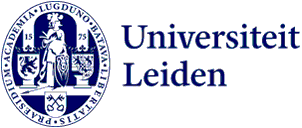
Got a question about science? Ask Leiden!
Why is the Moon so white? Why do we have birthmarks? But also: can my dog be racist? Vraag het Leiden (Ask Leiden) has answers to all these questions. Due to its success, the Leiden2022 Q&A has been extended and is looking for even more thought-provoking, interesting or unusual questions.
Vraag het Leiden has developed into a video platform (with hundreds of videos and articles) that has answered more than 200 thought-provoking questions. Many of the questions sent in are about biology, psychology and astronomy, but questions on other topics are welcome too. Project leader Friso de Hartog emphasises that young and old can ask questions and that no subject is too odd. ‘The youngest asker was four and asked: “Why does a black hole rotate?” That’s not necessarily a question you would expect from a four-year-old.'
De Hartog has discovered during the project how wide-ranging people’s interests can be. ‘It’s great to see. But I’ve also seen how difficult it is to ask a good question. That’s a skill in itself.’ Researchers De Hartog approached about answering a question in a video have welcomed the opportunity. ‘Researchers love being able to talk about their field.’
Leiden’s thinkers and doers
Thus far the questions have been answered by researchers from Leiden University. Vraag het Leiden has recently continued under the banner of Leiden City of Knowledge, the partnership between all knowledge institutions in Leiden. This means that experts from University of Applied Sciences Leiden and MBO Rijnland can answer questions of a more practical nature. ‘Alongside Leiden’s thinkers, the city’s doers can also share their expertise now’, says De Hartog. ‘Why do women pay more for a haircut? What’s the best way to secure my new house? And why is sourdough sour? Questions like these are now welcome too.’
De Hartog aims to answer all the questions from the people of Leiden as quickly as possible. To be able to do so, he is busy improving the website and the editorial system, including with tools that use artificial intelligence. De Hartog currently does everything himself – collecting the questions, finding the experts, making the videos – but thanks to the collaboration with Leiden City of Knowledge, students from the three knowledge institutions will soon be helping him out.
Spark curiosity
De Hartog is also looking at whether Vraag het Leiden can also be of help to primary and secondary schools, for instance with guest lessons or a learning package. ‘A crash course in asking questions, for example’, he says. ‘Because asking a good question isn’t as easy as you’d think. Where does your knowledge stop and the great unknown begin? We want to provide a learning package that helps children and sparks their curiosity.’
Got a good question? Ask vraaghetleiden.nl. Not all questions can currently be answered but the more interesting, exciting or funny the question, the greater the chance that you will get an answer.
Curious? Five questions from the Vraag het Leiden archive
‘I think my dog is racist. Is that possible?’ Hanna (25) asks. Professor Judi Mesman studies, among others, racism in humans. She tries to explain Hanna’s dog’s behaviour.
Due to the selected cookie settings, we cannot show this video here.
Watch the video on the original website orEmiel (13) asks: Why do we have birthmarks? Professor of Dermatology Remco van Doorn knows all about the skin and provides an answer.
Due to the selected cookie settings, we cannot show this video here.
Watch the video on the original website orHow can it be that empty space has measurable characteristics? This question comes from Joop (88). Cosmologist Alessandra Silvestri answers. ‘Empty space isn’t actually empty’, says Silvestri.
Due to the selected cookie settings, we cannot show this video here.
Watch the video on the original website or‘Can you see from an MRI scan of the brain if someone is a man or a woman?’ asks Lyn (18). Professor Marieke Bos has a very clear answer. ‘No.’
Due to the selected cookie settings, we cannot show this video here.
Watch the video on the original website orWhy do we change our teeth? And why do we only do this once? Asha (6) wondered about this because sharks can constantly replace their teeth. Why can’t humans do that? Rachel Schats, an assistant professor of osteoarchaeology, sinks her teeth into the answer.
Due to the selected cookie settings, we cannot show this video here.
Watch the video on the original website or